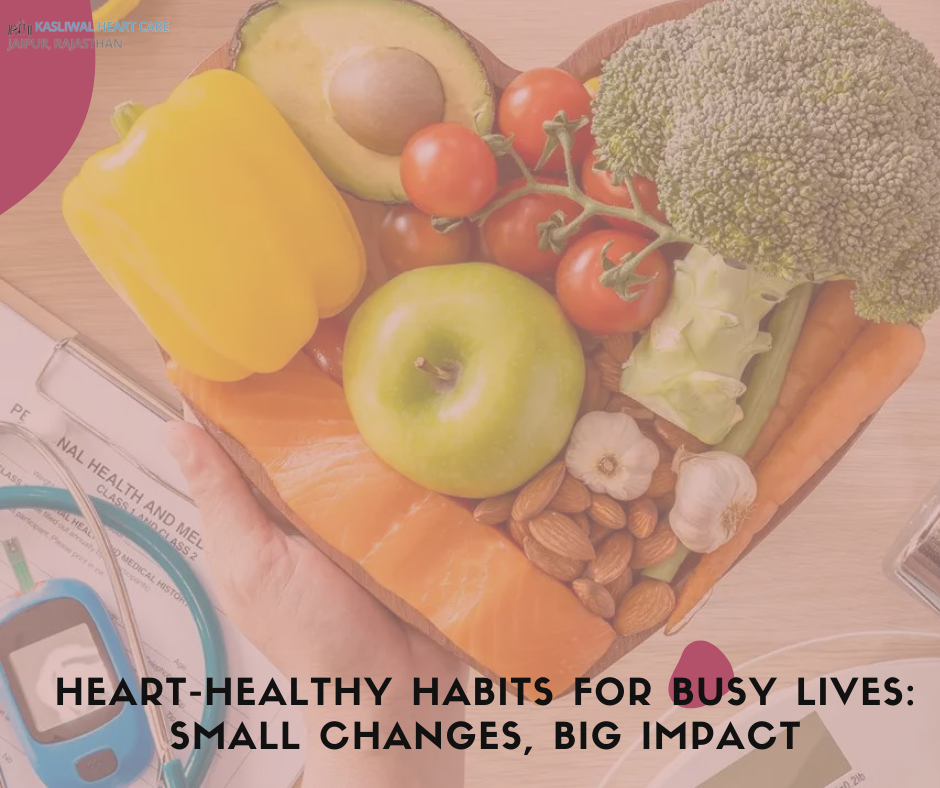In today’s fast-paced world, it can be easy to neglect our health, especially when it comes to our hearts. However, making small changes to your daily routine can have a big impact on your heart health. Here are a few tips to get you started:
1. Eat a heart-healthy diet:
- Choose plenty of fruits, vegetables, and whole grains – These foods are packed with nutrients that are good for your heart, such as fiber, vitamins, and minerals.
- Limit saturated and trans fats – These fats can raise your cholesterol levels, which is a major risk factor for heart disease.
- Choose lean protein sources – Lean protein sources, such as fish, poultry, and beans, are lower in saturated fat than red meat.
- Limit added sugar – Added sugar can contribute to weight gain, which is another risk factor for heart disease.
2. Get regular exercise:
Aim for at least 30 minutes of moderate-intensity exercise most days of the week. Moderate-intensity exercise means that you can talk but not sing while you are exercising. Examples of moderate-intensity exercise include brisk walking, jogging, swimming, and cycling.
3. Maintain a healthy weight:
If you are overweight or obese, losing even a small amount of weight can improve your heart health. Aim to lose 5-10% of your body weight.
4. Quit smoking:
Smoking is one of the leading causes of heart disease. If you smoke, quitting is the best thing you can do for your heart health.
5. Manage stress:
Stress can contribute to high blood pressure, which is a major risk factor for heart disease. Find healthy ways to manage stress, such as yoga, meditation, or spending time in nature.
6. Get enough sleep:
When you don’t get enough sleep, your body produces stress hormones that can increase your blood pressure and heart rate. Aim for 7-8 hours of sleep each night.
7. Get regular checkups:
See your doctor for regular checkups to monitor your heart health. This includes checking your blood pressure, cholesterol, and blood sugar levels.
8. Monitor blood pressure and pulse rate:
Regularly monitoring your blood pressure and pulse rate can provide valuable insights into your heart health. Ideally, you should check your blood pressure at home at least once a week and consult your doctor if you notice any significant changes. Additionally, keeping track of your pulse rate, especially during exercise, can help you stay within a safe and healthy range.
Dr. Atul Kasliwal – Heart Specialist in Jaipur
Dr. Atul Kasliwal is a renowned cardiologist in Jaipur with over 20 years of experience. He is an expert in the diagnosis and treatment of all types of heart conditions. Dr. Kasliwal is also a passionate advocate for heart health education and prevention.
If you are concerned about your heart health, please schedule an appointment with Dr. Atul Kasliwal today.
Conclusion
Making small changes to your daily routine can have a big impact on your heart health. By following these tips, you can reduce your risk of heart disease and live a longer, healthier life.
